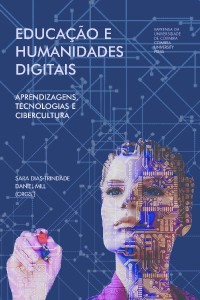Please use this identifier to cite or link to this item:
https://hdl.handle.net/10316.2/47422| DC Field | Value | Language |
|---|---|---|
| dc.contributor.author | Contreras-Espinosa, Ruth S. | |
| dc.contributor.author | Eguia-Gomez, Jose Luis | |
| dc.date.accessioned | 2019-10-02T15:56:52Z | |
| dc.date.accessioned | 2020-08-28T16:13:26Z | - |
| dc.date.available | 2019-10-02T15:56:52Z | |
| dc.date.available | 2020-08-28T16:13:26Z | - |
| dc.date.issued | 2019 | - |
| dc.identifier.isbn | 978-989-26-1772-5 (PDF) | |
| dc.identifier.isbn | 978-989-26-1771-8 | |
| dc.identifier.uri | https://hdl.handle.net/10316.2/47422 | - |
| dc.description.abstract | Modding is a form of production in which players experiment by developing and conceptualizing their work. The roles are mixed because the participants get involved in a great diversity of practices in continuous collaboration. In this study, we can detect some of the motivations, daily practices and roles adopted by a group of 40 students of higher education in Barcelona who make modifications to video games, with special attention to the consequences of participation and informal learning achieved. The research is based on an ethnographic study carried out during 2014. The results show the objective pursued by the modders (finalize complements or mods), what are their motivations (research, self-expression or cooperation), and the informal learning obtained by the participants (performance and performance of skills, teamwork or problem solving). The implications of the results are discussed with respect to informal learning. | eng |
| dc.description.abstract | El modding es una forma de producción en la que los jugadores experimentan desarrollando y conceptualizando su trabajo. Los roles se mezclan porque los participantes se involucran en una gran diversidad de prácticas en continua colaboración. En este estudio, se pueden detectar algunas de las motivaciones, prácticas cotidianas y roles adoptados por un grupo de 40 estudiantes de educación superior de Barcelona que hacen modificaciones a videojuegos, con una especial atención a las consecuencias de la participación y el aprendizaje informal logrado. La investigación se basa en un estudio etnográfico realizado durante 2014. Los resultados muestran el objetivo que persiguen los modders (finalizar complementos o mods), cuales son sus motivaciones (investigación, autoexpresión o cooperación), y el aprendizaje informal obtenido por los participantes (rendimiento y desempeño de habilidades, trabajo en equipo o resolución de problemas). Las implicaciones de los resultados se discuten con respecto al aprendizaje informal. | spa |
| dc.language.iso | spa | - |
| dc.publisher | Imprensa da Universidade de Coimbra | por |
| dc.rights | open access | - |
| dc.subject | Mods | eng |
| dc.subject | Videogame | eng |
| dc.subject | Informal Learning | eng |
| dc.subject | Mods | spa |
| dc.subject | Videojuegos | spa |
| dc.subject | Aprendizaje Informal | spa |
| dc.title | Aprendizaje informal con mods en videojuegos | por |
| dc.title.alternative | Informal learning with videogame mods | eng |
| dc.type | bookPart | por |
| uc.publication.firstPage | 309 | - |
| uc.publication.lastPage | 327 | - |
| uc.publication.location | Coimbra | por |
| dc.identifier.doi | 10.14195/978-989-26-1772-5_14 | - |
| uc.publication.section | Parte 2 - Tecnologias digitais em contextos educacionais: experiências, propostas e possibilidades | por |
| uc.publication.digCollection | PB | por |
| uc.publication.orderno | 15 | - |
| uc.publication.area | Artes e Humanidades | por |
| uc.publication.bookTitle | Educação e humanidades digitais: aprendizagens, tecnologias e cibercultura | - |
| uc.publication.manifest | https://dl.uc.pt/json/iiif/10316.2/47422/199086/manifest?manifest=/json/iiif/10316.2/47422/199086/manifest | - |
| uc.publication.thumbnail | https://dl.uc.pt/retrieve/10981795 | - |
| uc.publication.parentItemId | 55445 | - |
| uc.itemId | 67810 | - |
| item.grantfulltext | open | - |
| item.fulltext | With Fulltext | - |
| Appears in Collections: | Educação e humanidades digitais: aprendizagens, tecnologias e cibercultura | |
Files in This Item:
| File | Description | Size | Format | |
|---|---|---|---|---|
| aprendizaje_informal_con_mods_en_videojuegos.pdf | 1.21 MB | Adobe PDF |  |
Items in DSpace are protected by copyright, with all rights reserved, unless otherwise indicated.
